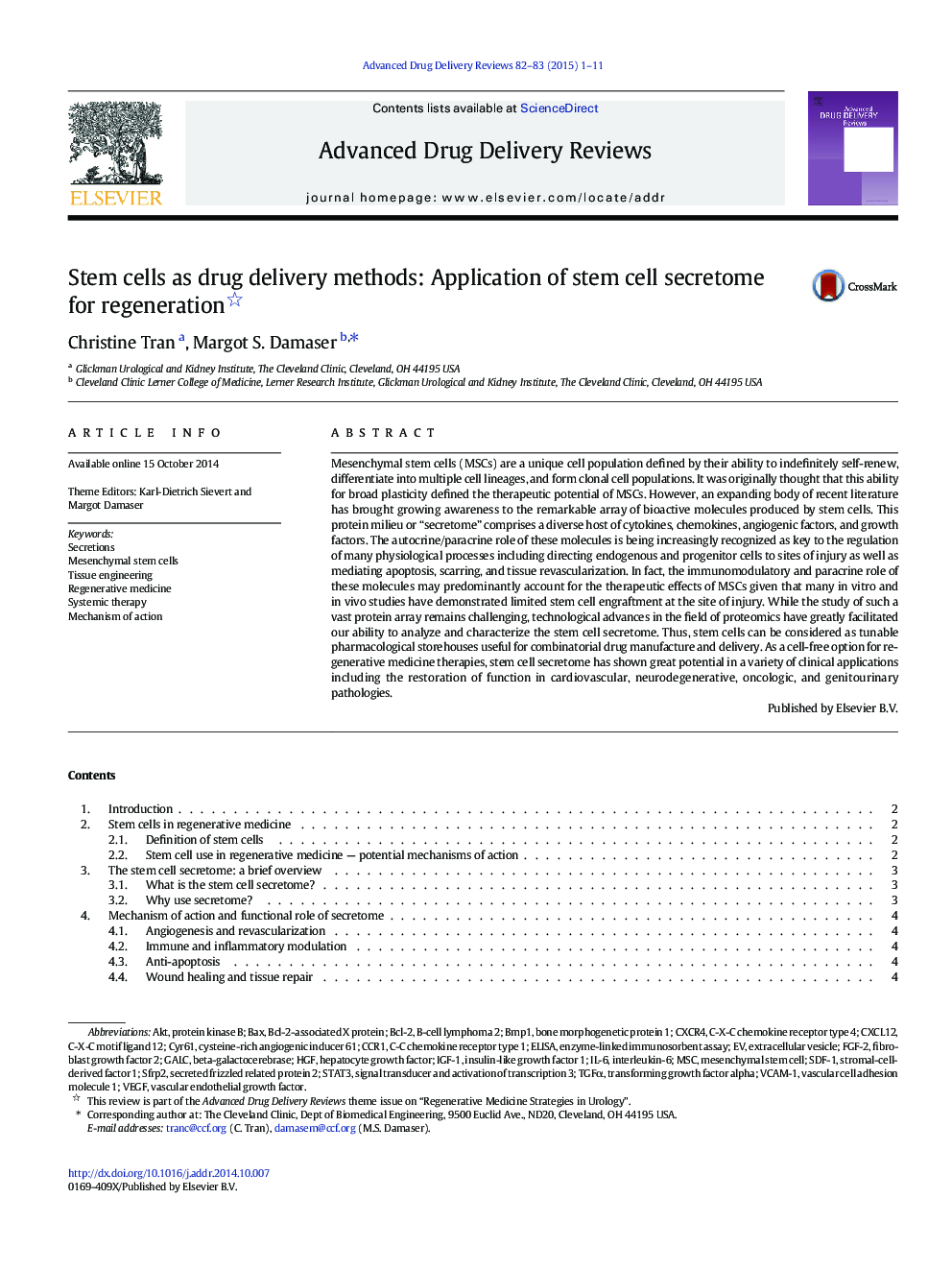| Article ID | Journal | Published Year | Pages | File Type |
|---|---|---|---|---|
| 2070766 | Advanced Drug Delivery Reviews | 2015 | 11 Pages |
Mesenchymal stem cells (MSCs) are a unique cell population defined by their ability to indefinitely self-renew, differentiate into multiple cell lineages, and form clonal cell populations. It was originally thought that this ability for broad plasticity defined the therapeutic potential of MSCs. However, an expanding body of recent literature has brought growing awareness to the remarkable array of bioactive molecules produced by stem cells. This protein milieu or “secretome” comprises a diverse host of cytokines, chemokines, angiogenic factors, and growth factors. The autocrine/paracrine role of these molecules is being increasingly recognized as key to the regulation of many physiological processes including directing endogenous and progenitor cells to sites of injury as well as mediating apoptosis, scarring, and tissue revascularization. In fact, the immunomodulatory and paracrine role of these molecules may predominantly account for the therapeutic effects of MSCs given that many in vitro and in vivo studies have demonstrated limited stem cell engraftment at the site of injury. While the study of such a vast protein array remains challenging, technological advances in the field of proteomics have greatly facilitated our ability to analyze and characterize the stem cell secretome. Thus, stem cells can be considered as tunable pharmacological storehouses useful for combinatorial drug manufacture and delivery. As a cell-free option for regenerative medicine therapies, stem cell secretome has shown great potential in a variety of clinical applications including the restoration of function in cardiovascular, neurodegenerative, oncologic, and genitourinary pathologies.
Graphical abstractFigure optionsDownload full-size imageDownload high-quality image (138 K)Download as PowerPoint slide
